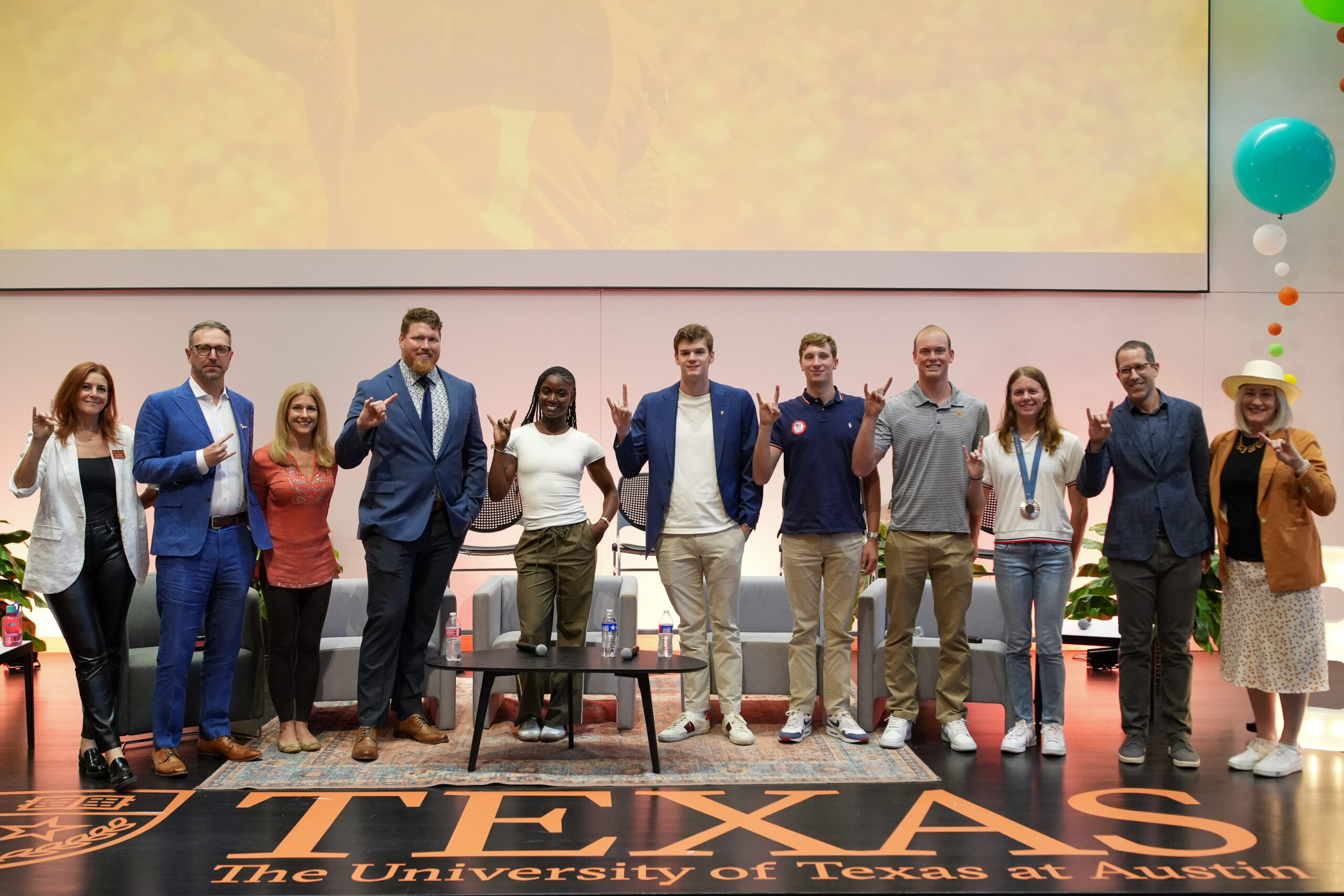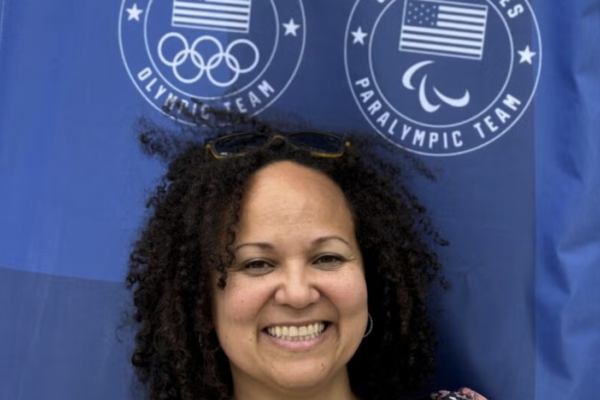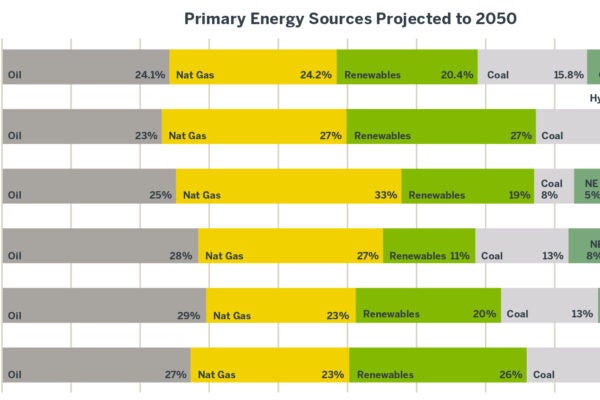Tips From Sports Insiders
McCombs’ Business of Sports Summit pooled the industry’s leading visionaries to inspire UT students

“Not in front of the internet, dang it,” quipped UT Athletics Director Chris Del Conte in response to a question about how the Longhorns were going to navigate the Wild West of college sports in the “name, image, and likeness” (NIL) era better than everyone else. Del Conte was participating on a panel at the 2024 Texas Business of Sports Summit, which took place Friday, Oct. 18, at the McCombs School of Business at The University of Texas at Austin. Bringing together finance execs, athletics directors, TV anchors, and media strategists, the summit — started by professors Kirk Goldsberry and Ethan Burris — is the flagship event of McCombs’ Business of Sports Institute.
What would you do if you were an AD (athletics director) dealing with NIL? What place will private equity, sports betting, and football conferences have in the future of college athletics? Will breakdancing make another appearance at the Olympics? The summit drew a jam-packed crowd of more than 600 UT students, faculty, staff, and sports industry professionals with a quick-fire, immersive, and uplifting exploration of these questions.
First, a little context: There is much money flowing in and around college sports right now, but also much uncertainty. While broadcast networks, boosters, and private equity investors are pouring money in, universities are also spending more than ever to recruit and retain elite student-athletes. This is leading to a “short-term funding dislocation” in athletic programs, Gerry Cardinale, RedBird Capital Partners’ CEO, told the summit. “So, the question is: Who do you want to partner with? Who is your capital partner for that?”
For Cardinale, sport is a great investment — but not an asset class. “Only the new money is talking about that,” he said, casting an investment in sports as an investment in intellectual property — more akin to Disney buying Marvel than to a hedge fund buying bonds. Ultimately, the bet being made at RedBird is less about trophies and more about spectacle: People follow teams not simply because they win, but because they are invested in their brand identities and riveted by performances.
Casey Wasserman, chair and president of the Los Angeles Olympic Organizing Committee, would concur. Speaking to the summit, he stressed that LA 2028 was, “a commercial project, not a construction project.” As such, the assets that will make up the games will be spectacle and experience rather than brick and mortar. “We don’t have to build anything, so I often hear ‘there’s nothing going on’ from people. But we’re going to take LA’s existing venues and electrify them.” Also, Wasserman is a hard pass on breakdancing.
In a similar vein, the transformation of college football currently underway is a commercial rather than a construction project. The stadiums, practice fields, coaches, players, broadcasters, and TV deals are already there. What happens to the conferences, NIL deals, and game day experiences is all up for debate. Within this context, Del Conte stressed at the summit the need to keep education at the center of the college athletics world. “Two percent of our athletes go pro,” he pointed out. “How we prepare them for the rest of their lives really matters.”
Of course, many student-athletes will gravitate from the playing to the business side of sports — just like Mike Levine, the co-head of Creative Artists Agency Sports, who told the summit that when he was a lacrosse player at Cornell University, his coaches tried to keep him out of trouble by giving him odd jobs such as selling programs. “I got 17 cents for every $2 program I sold,” recalled Levine. “Next thing, I was writing press releases, and somehow I was qualified for a job in sports.” His advice to students interested in careers in the business of sports: “Figure out where you want to fit in and go for it. There is no path. Just remember that everything connects and that relationships are the most important thing in our industry.”
But according to Levine’s fellow panelist Amy Howe, the best route is sometimes the long route. Howe is the CEO of FanDuel and didn’t get into sports until later in her career. Previously, she worked in management consulting with McKinsey & Company, as well as in marketing and communication. “Sometimes you can do it right out of undergrad, but there are lots of ways to get there, so don’t get frustrated,” she told students at the summit.
ESPN anchor Elle Duncan, who moderated the conversation between Levine and Howe, hit a similar note. “Take the pressure off yourselves. Success is not always a linear path,” Duncan said in an interview with McCombs students between panels. “It takes time. We are in a Crock-Pot world, not a microwave one.” Solid advice for students hoping to get into the business of sports. Solid advice, period.
Story by Ben Wright
About this Post
Share:


